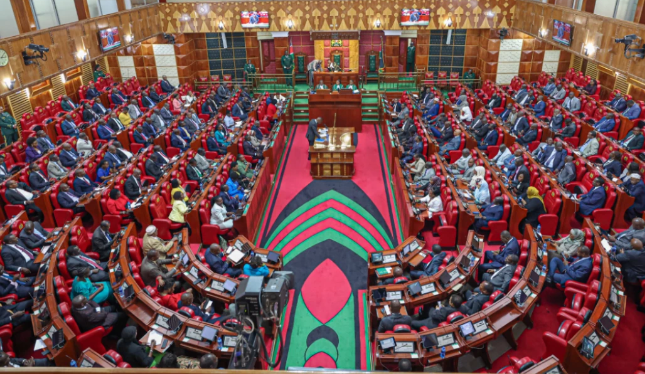Companies benefiting from tax reliefs under special agreements with the Treasury and KRA may face heightened scrutiny after a House committee declared such deals unconstitutional. The National Assembly’s Delegated Legislation Committee, chaired by Ainabkoi MP Samuel Chepkonga, ruled these agreements, commonly known as SOFA, null and void due to constitutional concerns.
The committee specifically criticized the lack of transparency, particularly the nondisclosure of forgone taxes, as evidenced in an agreement between KRA and a steel-making company, Blue Nile Rolling Mills. The company entered into a 10-year agreement in 2020 with the Treasury and the Ministry of Industrialisation, preventing KRA from collecting approximately Sh5 billion in taxes.
MPs are calling for punishment of all parties involved in what they consider an irregular tax exemption under the SOFA framework. The agreement allowed the company to benefit from a reduced corporate tax rate of 10 percent for the first five years—until December 2024—and exemption from VAT on locally purchased or imported goods used in steel production.
“Article 7 of the SOFA arrangement on confidentiality is unconstitutional,” stated the committee in a report presented to Parliament. The probe was initiated by Kiambaa MP Njuguna Kawanjiku, who questioned the legality and fairness of the tax exemptions granted to the company.
MPs investigated the legal foundation of the exemptions, the benefits granted to the company, and the potential effect on government revenue and the local steel industry. The committee concluded that the SOFA agreement lacked openness, accountability, and public participation.
“SOFA was a statutory instrument that should have been submitted to the National Assembly for review, as required by the Statutory Instruments Act. Therefore, the committee determined that the SOFA was a nullity from the start,” the MPs said.
It was revealed that the Treasury failed to publish a gazette notice and submit it to the National Assembly for approval. MPs stated that they were not involved in any stage of the exemption process, which denied them the opportunity to provide oversight.
“This House resolves to declare that the said Special Operating Framework Agreement was executed outside the requisite legal framework, making it a nullity and hence void,” the committee recommended to Parliament.



